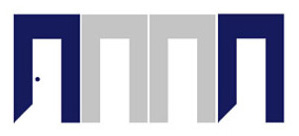Goal 1: Students are innovative, ethical, problem-solvers able to lead and manage through communication, collaboration, and reflection.
I.a. Students are able to evaluate critically, reflect, and problem-solve individually as well as collaboratively.
The three articles selected below are examples of critical thinking on current issues affecting libraries and information centers.
- Is TOR Browser a Viable and Ethical Solution for Libraries
The need to protect patrons privacy has pushed some libraries to install TOR browsers on their computers. However, privacy obtained through browsers like TOR are tied to other ethical and fundamental issues like latency and indirect support of criminal activities. - Globalization, for Better or for Worse
Globalization represents, in theory, a marvelous way to push progress. Nonetheless, its effects are not homogeneous and could become the culprit for further digital divide. - The Future of Reality
This paper intends to analyze how our understanding of reality has been affected by the amount of information that is at our reach, thanks to the development of computational devices which have uncovered unprecedented amounts of data on every human activity. Statistics, laws of physics, nature, psychology, and sociology are converging into a new paradigm that is challenging our individuality. The article also tackles the relevance of finding adequate ways to deal with information for archival and retrieval purposes.
I.b. Students demonstrate effective communication skills
To demonstrate communication skills, the following three links provides an article, a poster, and a presentation sample for three different courses
- McGregor’s Leadership Theory
In the Library Administration course we discussed several management theories. I think that Douglas McGregor’s approach is brilliant in its simplicity. He proposed that preconceived assumptions, hold by managers in regards to their human resources, are the causes -not the effects- of employees’ behavior in an organization. His theory turned the table as of how we may understand employees’ behaviors. It pushes managers to deeply engage in self-awareness to reach the organization’s goals. - Searchable Bibliographic Data
This is an article comparing schema.org and BIBFRAME use in libraries.
I.c. Students participate in professional and community engagement activities in the field.
- For this goal, please visit Co-Curricular activities page by clicking the tab in the top navigation
I.d. Students demonstrate leadership skills and innovation in a diverse and global environment.
- Strategic Planning
The paper contains the strategic planning of an imaginary library in an urban setting. - Resilience
The purpose of the paper is to analyze one the most relevant and necessary characteristics needed for leaders during times of change. - Case Study Analysis
It was an interesting assignment to evaluate circumstances that may occur in real life while working at the library. Handling ethical issues, as well as management, and communications issues made this particular analysis very enlightening
